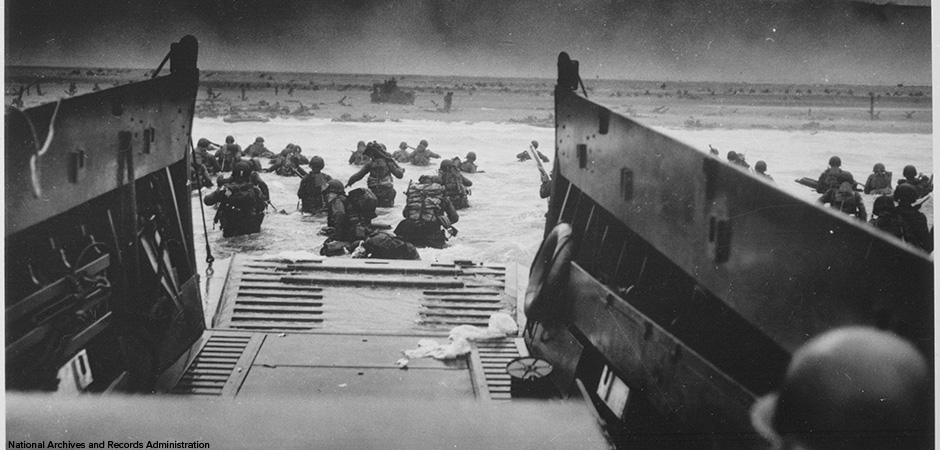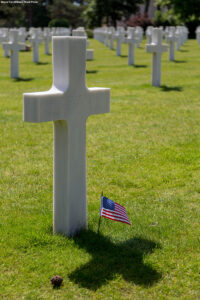
On June 6, 1944, the soldiers of the Allied Forces landed on the beaches of Normandy, France. The day of the invasion is known as D-Day. The invasion was a key turning point in World War II. The Allies landed in German occupied France, opening up a new front in the war against Nazi Germany. Over 350,000 soldiers and sailors from 13 Allied nations participated in the landings. More than 4,400 of these men would lose their lives in the assault.
D-Day is remembered in Normandy every year. This year’s anniversary will be memorable because it is the 80th anniversary of the invasion. It will be the last time many of the still-living veterans who participated in the attack will be able to participate in the memorial services.
Honoring Heroes

The week-long celebration began on Sunday June 2, 2024. Parachutists jumped from restored World War II planes into the calm skies over Normandy. The crowd below listened to World War II era musicians such as Glenn Miller and Edith Piaf. People cheered as the parachutists landed.
The primary purpose of the week’s events is to honor the Allied troops who fought bravely 80 years ago, eventually defeating the Germany army and freeing Europe from Adolf Hitler’s control. French officials, local survivors, and admirers are expressing their gratitude and bidding farewell to the ever-dwindling number of veterans who remain.
Important Memories
Many World War II veterans, now in their late nineties or older, have traveled to France for what may be their last time. They’ve come to remember their fallen friends and the significant events that changed history.
Ralph Goldsticker served as a U.S. Air Force captain and participated in the D-Day landings. He described seeing countless ships from his aircraft and carrying out bombing raids on German military positions. He recalls dropping his first bomb early in the morning on June 6th. For Goldsticker, it was a job he trained for over several months. The experience remained a painful memory. After the war’s end he didn’t talk about the part he played in the invasion for 70 years.
The ceremonies this week, including fireworks and solemn commemorations, aim to pass the memory of these events to the current generation. Notable figures such as French President Emmanuel Macron, German Chancellor Olaf Scholz, U.S. President Joe Biden, Canadian Prime Minister Justin Trudeau, Ukrainian President Volodymyr Zelenskyy, and British royals are expected to attend the memorial events in France.
